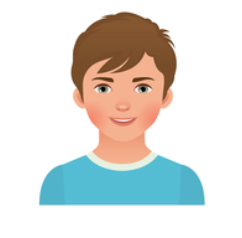Tuition Subjects
Why do students find maths so hard?
When students are asked to name the most difficult subject in school , not surprisingly, maths often comes out on top. So what is it about maths that we find so difficult?
Maths learning is cumulative, which means it works much like building blocks. You have to gain understanding in one concept before you can move on to the next. Our first building blocks are established in primary school, when we learn rules for add, subtract, multiply and divide. Those first concepts usually build our foundation but all too often for many students this is where the problems start and if not dealt with it can lead to a loss in confidence in the future.
With large class sizes many students don’t get sufficient time to understand the core concepts and end up falling behind as the teacher moves on.
Making Maths Less Difficult
Mental maths is the key to confidence in learning maths so this is usually a good starting point.
Good tutors know how to break maths down into manageable chunks so that a student can learn step by step and build confidence in the core concepts first.

Josh
Year 6
I really like Studybox because every day I know I’m going to learn something new.
What is English literacy? Literacy is our ability to read, write, speak and listen in a way that lets us communicate effectively. Why is it so important? We use literacy skills in everyday life so the earlier we learn the better chance we have of being successful at school and in employment. Ways to support your child’s literacy development.
- Find books and reading material that interest them – use the local library.
- Read them stories.
- Let your children see you reading – it could be a magazine or newspaper.
- Encourage your children to practise speaking in front of a group.
- Discuss the news, TV shows, movies and issues of the day with your children.

Prisha S
I like Studybox becuase when I finish my work I get to play a game. My tutors are really nice and they help me with my homework.
Do you have a child in primary school in year 2 or year 6?
If so, they will be taking the national curriculum tests (SATs) in May 2017. The tests will provide information about how your child is progressing, compared to children the same age nationally. The results are used to ensure that schools are teaching their pupils the essential knowledge and skills in the subjects that are the early building blocks. This is to ensure every child reaches their full potential.
How to help your child feel prepared
The class teacher will be doing most of the preparation for your child however there are some things you can do at home.
- Use past papers to practise the kind of questions they may need to answer in a test.
- Reading lots of books and ask comprehension questions about what they have read.
- Mental maths is a big part of the test so make sure they know their time tables.

Arron C
My Tutor helped me to learn all of the questions in my SATS test and I liked doing test practise papers before the real test.
If you’d like your child to attend one of Sutton’s grammar schools, they will have to get through the 11+ test first.
The test is usually taken at the start of year 6 but parents often start planning how to prepare much earlier.
So can anyone take the 11+?
Many grammars have catchment areas and pupils must live within the area by a set date to be eligible to take the exams and potentially gain a place.
Should my son or daughter sit the 11+ exam?
If a student shows clear ability and self motivation then the 11 plus can be an easy decision. Not all 10 year olds are ready for the level of work involved to pass the test and will need some serious guidance to get them prepared.
My child’s already top of their class, will this help?
It is certainly a good start if they are already doing well at school but this does not mean they will pass the test. Some classes or year groups will be especially bright and some not, so a top set child in one class or school, might actually be more average in another.
OK, we’ve decided to do it. What now?
It’s wise to do some preparation for the tests. Sending a child into the exam room without preparation for the kind of questions involved will do them no favours when most other students will be highly prepared. How much to do and when to start are difficult questions to answer though. What’s needed will depend on where your child is at academically and how competitive it is to get a place at your target school. Having your child assessed can give you a enough information to make the decision so get in touch today and book a free trial.

I did the 11 Plus course on Fridays and it was good because my friend did it with me. The test papers were really helpful and i passed the test and got into Nonsuch.
How important are GCSE grades?
In short, your GCSE grades will help shape your next few years after you sit them. Even if you don’t plan to go to University most employers expect people to have good maths and English GCSEs and without this, it can be hard to get your foot in the door. If you’re concerned that one or more of your results might hold you back, don’t panic – speak to us today and put a plan in place to get the grade you want.
GCSE reform – what’s happening and when?
In September 2016, new GCSEs in English and maths were introduced. The first of these exams will take place in summer 2017.
What’s changing?
Exams and assessment
- Most exams will be taken at the end of the two-year course rather than on completion of modules.
- There will be fewer ‘bite-sized’ questions and more essay-style questions.
- The content will be more challenging, with more substantial texts in English literature and a number of new topics in maths.
- Everyone will have to do at least two science GCSEs (no single science option after 2016).
- Coursework and controlled assessment will disappear from most subjects, apart from practical ones such as art, dance and drama.
GCSE grades
- Grading will move to a 9-1 scale, with grade nine being roughly equivalent to a top A* grade and a grade four equivalent to a low to mid grade C.

I failed my mock test at school so i started having extra lessons at StudyBox. My tutor is very good and i like that he can help me with my school homework if i get stuck.
Book A Free Trial Now!
Book a free trail and receive a free report on your child’s strengths and weaknesses.
